Warner Bros. Discovery launches its first-party data platform, Olli.
Warner Bros. Discovery announced the debut of Olli, a new proprietary first-party data platform that will manage campaign planning, activation, and measurement across the media conglomerate’s entire inventory portfolio. According to the firm, Olli would help advertisers execute more efficient campaigns by providing a clearer perspective across its many media platforms. For example, WBD claims that integrating with VideoAmp will enable marketers to eliminate heavy linear TV consumers early in the planning phase, redistributing that expenditure to increase reach and frequency.
WBD claims Olli has an audience graph encompassing its direct contacts with customers that includes over 100 million households and 700 million devices in the United States, allowing it to recognize its audience across different devices and media kinds. These profiles also include first-party data for audience targeting, and WBD claims that Snowflake’s clean room solutions will allow advertisers to incorporate their own data. According to the firm, Olli also streamlines WBD’s ad tech procedures, allowing for unified portfolio planning.
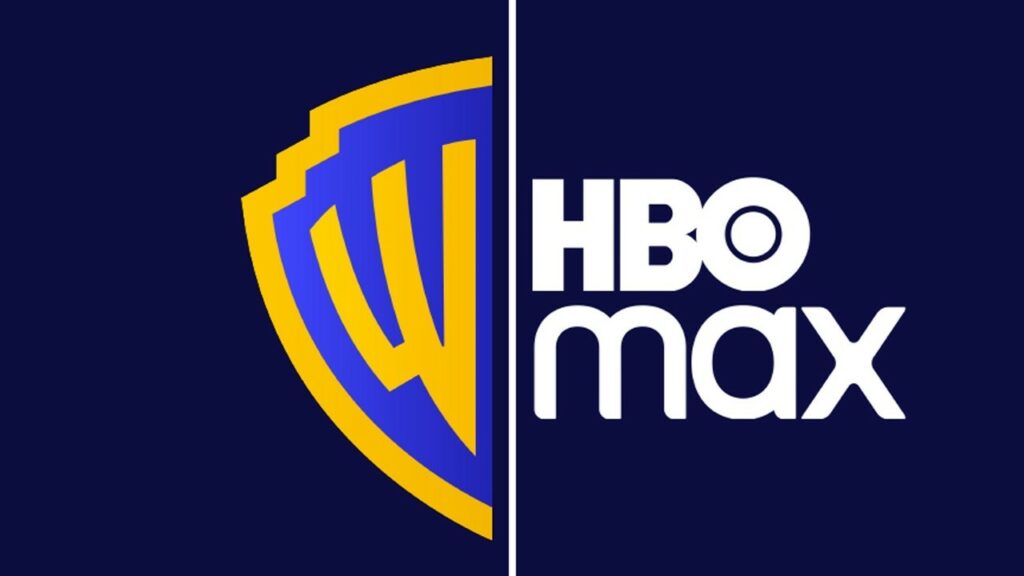
On the measurement front, WBD claims Olli will give more relevant campaign data through collaborations with ABCS data and LoopMe. “Our goal is to ensure that every connection between brand and audience is reached in the most efficient and effective way possible across our vast expanse of digital and traditional platforms,” said Ryan Gould, Warner Bros.’ head of digital ad sales. Discovery.
YouTube Revenues Reach $8 Billion in Q1 as Short-Form Monetization Improves.
YouTube has reported its greatest Q1 earnings to history, achieving $8.1 billion in ad sales in the first quarter of 2024, a 21 percent increase year on year.
YouTube’s continuous expansion into linked TVs, which has been a significant emphasis for the business in recent years, boosted revenues. According to YouTube, consumers watch more than one billion hours of information on TV screens every day. For reference, Netflix estimated last year that it receives over 100 billion viewing hours over a six-month period, or roughly half a billion hours every day.
Ad revenue was also increased by enhanced monetization on YouTube Shorts, YouTube’s TikTok competitor. According to Philipp Schindler, chief business officer of parent firm Alphabet, monetization compared to in-stream viewership has increased over the last year. Last week, YouTube also announced new ad options for Shorts, which are intended to increase monetization even further.
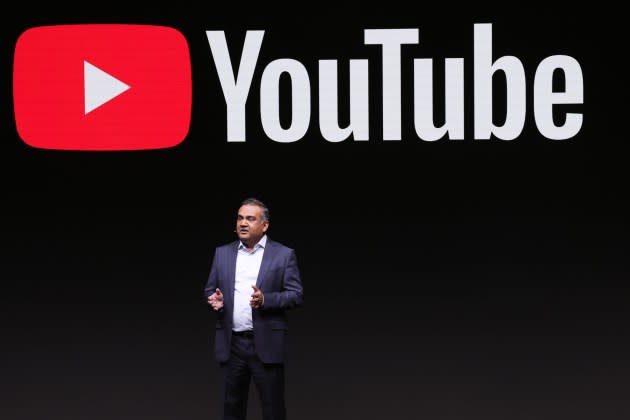
YouTube’s results, when compared to other industry data, highlight the company’s dominant position in the video landscape. For example, IAB data released earlier this week predicted that total US digital video ad spend this year, including all CTV and social video, would reach $63 billion, or nearly $16 billion each quarter. Thus, YouTube’s ad revenues account for more than half of all US digital video ad revenues, including all CTV income generated by streaming firms in the United States.
TV accounts for more than half of advertising revenue but less than half of investment.
Based on client data from Ebiquity, EssenceMediacom, Gain Theory, Mindshare, and Wavemaker UK, a new Thinkbox study discovered that £1 invested in advertising yields just over £4 in profit. The study also revealed that TV accounts for 54.7 percent of advertising’s total payback but only 43.6 percent of total ad investment. Within this, linear TV accounts for 46.6% of total payback, with BVOD accounting for 8.2%.
The survey also found that TV has an average full-profit ROI of £5.61 for every pound spent. In comparison, online video (mostly YouTube) has an average full profit ROI of £3.86 for every pound spent, accounting for 3.4% of total advertising-generated profit.
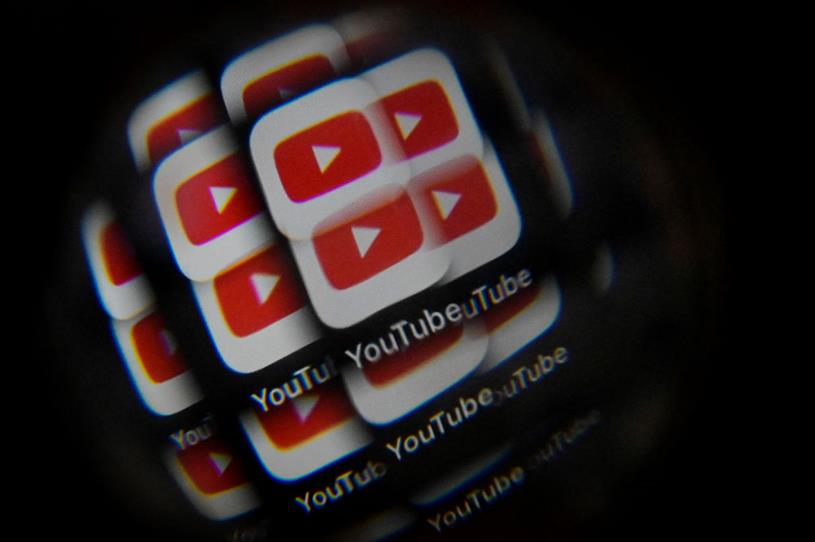
“Despite the world’s upheaval, the fundamentals of advertising effectiveness remain relevant,” stated Matt Hill, Research and Planning Director at Thinkbox. “It’s fantastic to see TV performing so well at whatever speed you want to drive profit, but this is about the power of advertising as a business investment that boosts the bottom line and the economy. I hope businesses act on these results.”
The Week in Technology
Google extends its cookie deadline until 2025.
Google has announced that it will again postpone the deadline for eliminating third-party cookies from its Chrome browser. The deadline, originally set for the beginning of 2022, was previously scheduled for the end of this year and has already been pushed back many times. However, Google has stated that additional time is required to consider industry views and allow the UK’s Competition and Markets Authority, which oversees Google’s decision, to analyze evidence. It now says it plans to ratchet up cookie deprecation “starting early next year.” Read industry reactions to the news at VideoWeek.
EU Threatens to Suspend TikTok Lite Over Addiction Among Children
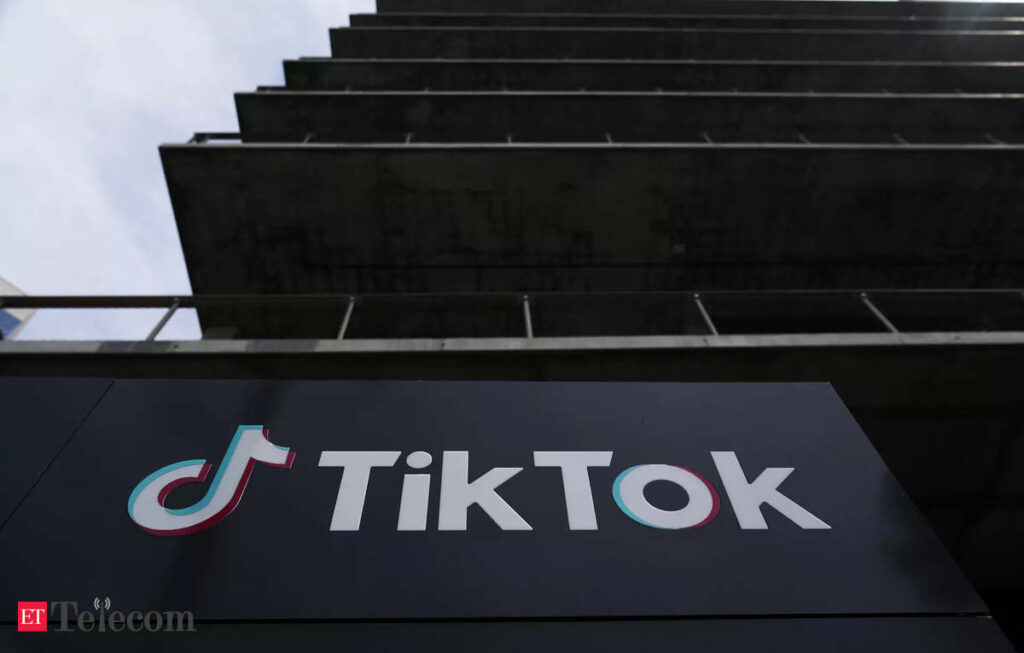
The European Commission has threatened to ban TikTok Lite, the company’s reward system that pays users for viewing and liking videos, due to worries over its addictiveness for children. “Unless TikTok provides compelling proof of its safety, which it has failed to do until now, we stand ready to trigger DSA [Digital Services Act] interim measures including the suspension of TikTok Lite feature which we suspect could generate addiction,” said Thierry Breton, the head of the European Union’s TikTok answered that the service is not available to users under the age of 18.
READ MORE: No, YouTube TV Does Not Require A Max Subscription To Watch DVRed Warner Bros. Discovery Shows
YouTube Signs Up with Ipsos Measurement for UK Online Viewing
Ipsos, a market research business, announced this morning that it will integrate UK watching data from YouTube into its online audience measuring platform, Ipsos iris. According to Ipsos, the integration will allow media owners, agencies, and advertisers to analyze watching data from several online video publishers in one place, allowing businesses to change their content and advertising strategy. Ipsos iris tracks viewing across demographics and will deliver YouTube data for over 500 audience segments.
Advertisers Look to CTV and Social Video in the Lead-Up to Cookie Deprecation
CTV spending increased in the UK last year, according to the most recent IAB Digital Adspend report, as advertisers seek to invest in cookieless environments. The analysis, conducted in collaboration with PwC, discovered that ad spend on CTV devices (£1.2 billion) increased by 21 percent year on year, accounting for 17 percent of total video spend in 2023. According to the research, the UK digital ad industry rose by 11% year on year to £29.6 billion in 2023. According to the research, the growth rate outpaces GDP by 0.1 percent, indicating advertisers’ desire to capitalise on rising involvement in online entertainment and its associated digital ad forms.
Deutsche Telekom and Equativ bring addressable ads to MagentaTV.
Deutsche Telekom revealed this week that MagentaTV, the German telco’s TV package, will support addressable advertising beginning in mid-2024. Addressable advertising will be traded programmatically via Equativ, a French ad tech company that operates an ad server, supply-side platform (SSP), and demand-side platform (DSP). The telco recently redesigned MagentaTV, which provides live TV and on-demand programming, as well as free ad-supported streaming TV (FAST) channels. The platform features a variety of broadcaster material, and the relationship with Equativ enables major TV broadcasters to offer their own inventory programmatically on MagentaTV.

Meta shares tumble on AI spending spree.
During Meta’s earnings call this week, Mark Zuckerberg vowed to expand expenditures, promising to transform the business into “the leading AI company in the world” and sending its stock down about 12%. Meta’s revenues increased 27 percent year on year in Q1, but the tech behemoth revised its full-year capital expenditure projection from $37 billion to $40 billion to finance its AI expenditures. The spending surge follows Zuckerberg’s “Year of Efficiency” in 2023, which saw capital expenditures exceed $28.1 billion.
Snap’s improved ad targeting is starting to pay off.
Snap revenues increased by 21% year on year in Q1 2024, according to the company’s earnings report released on Thursday, citing advances to its ad targeting skills. Snap shares rose 25% in response to the results. “Given the progress we have made with our ad platform, the leadership team we have built, and the strategic priorities we have set, we believe we are well positioned to continue to improve our business performance,” the company stated to investors.
Onetag Partnership Expands Inventory Curation to Multilocal
Multilocal, a programmatic expert, will provide clients with access to Onetag’s publisher inventory as part of a new relationship with the curation platform. The integration adds Onetag DealCurate to Multilocal’s solution, which uses impression-level traffic filtering to eliminate low-quality media from the programmatic supply chain. “This partnership between two major players in the curation space cements curation’s place as a key component of the programmatic ecosystem,” James Leaver, CEO of Multilocal, said in a statement. “Curation is innately agnostic, providing more alternatives and scalability for both customers and sellers. This integration demonstrates Multilocal’s growing importance and will make it easier for clients to take advantage of its numerous benefits.”
Reddit launches an ad format for e-commerce advertisers.
Reddit has added a new ad format to its commerce offering, the Reddit Shopping Suite. Dynamic Product Ads allow e-commerce advertisers to promote relevant products while users are talking and deciding what to buy. “Over the coming years, we intend to continue investing in both advertising and organic shopping solutions to further build on Reddit’s rich shopping conversations, and the opportunity for e-commerce brands to bring their products into the most relevant communities,” the company said in a press release.
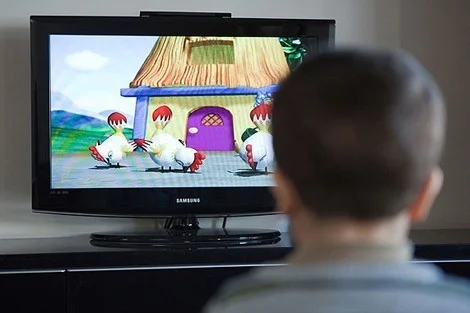
Playground xyz will rebrand as GumGum in APAC.
Playground xyz will rebrand as GumGum in APAC after being acquired by the contextual ad tech startup in 2021. Playground xyz creates attention-grabbing ad forms, which are now completely integrated with GumGum’s ad solutions. The APAC integration, according to the business, will fuel the global deployment of The Mindset Platform, which combines GumGum’s media products, Verity, a contextual targeting platform, and Playground xyz’s Attention Intelligence Platform (AIP), which will remain a standalone solution.
X TV App “Coming Soon”
X (previously Twitter) stated this week that its CTV app will be “coming soon to most smart TVs.” Elon Musk first teased the app in July 2023, then reignited the rumors this month. The company also stated that users would be able to cast videos from the mobile app to TV, as the struggling social media company continues to adopt YouTube-style goods in its ongoing video push.
READ MORE: Warner Bros. Discovery Will Soon Begin Cracking Down On Password Sharing On Max
The Week in Television
Viaplay continues its recovery with a renewed focus on core markets and distribution partnerships.
Nordic streaming company Viaplay has declared a strong start to 2024, becoming the latest European broadcaster to show indications of recovery in the TV ad market. The company’s sales increased by 6% year on year in Q1, matching the quarterly growth rates of both MFE and ProSiebenSat.1. Following a recapitalization program, which it described as “an important step” in returning to profitability, the firm said it was on track to reach its full-year goals.
Ads Increase Subscriber Churn at Amazon Prime Video
Kantar reports that Amazon Prime Video has had “significant” subscription turnover after introducing commercials. The study discovered that Prime’s share of new subscribers, overall number of subscribers, proportion of Prime users interacting with Prime Video, and subscriber advocacy all “fell significantly” during Q1. According to the survey, Prime Video was “the only major service whose subscribers display an active net dissatisfaction with the number of ads being served.”
Paramount will handle ad sales for SkyShowtime’s new tier.
SkyShowtime, a European streaming joint venture (JV) between Comcast and Paramount, has launched an ad-supported tier in all territories, with Paramount handling advertising sales. According to the JV, the Standard with Ads plan includes around four to five minutes of advertising every hour. “By leveraging our deep relationships with some of the world’s leading marketers, incredible product offerings, and innovative technology, Paramount Advertising is the perfect partner for SkyShowtime,” said Lee Sears, President of International Markets Ad Sales at Paramount.

EBU Report Highlights Economic Contribution of Sports Broadcasting by Public Service Broadcasters
According to a new Oxford Economics analysis commissioned by the European Broadcasting Union (EBU), public sector sports broadcasting would add €4.9 billion to Europe’s GDP and sustain over 60,000 employment by 2022. “Our analysis reveals a symbiotic relationship between free-to-air sports broadcasting and economic vitality, illustrating the far-reaching ripple effects of this dynamic industry all across the continent,” said Doug Godden, Lead Economist at Oxford Economics and report author. “What’s more, providing sporting action to audiences for free has great value to the public of the countries in which EBU Members operate.”
Sky Media Expands Search Behavior Targeting with Captify.
Sky Media has expanded its partnership with Captify, a search intelligence tool that enables companies to target TV audiences based on their online search activity. The announcement comes six months after the businesses introduced Search Behaviour Targeting on Sky. Since then, the number of categories available to advertisers has doubled, to 18 audiences. “We are delighted by the growing demand from Sky Media’s clients to use Captify search data to reach desired target audiences,” said Rishi Chande, Captify’s SVP of Global Strategy and Business Development. “We are working closely with the Sky Media team to improve the targeting and attend to the demands of their different clients.”
Apple aims for FIFA Club World Cup rights.
The New York Times reported on Monday that Apple is closing in on the FIFA Club World Cup rights. Sources indicated a $1 billion contract might be completed soon, following its $2.5 billion payout to Major League Soccer (MLS) in 2022. However, sources say that FIFA administrators are concerned that the tournament will only be available to Apple TV+ customers.
READ MORE: Disney, Fox, And Warner Bros.’s New Sports Streaming Service Is Being Sued by Fubo
Peacock reports gains as Comcast loses broadband customers.
Peacock revenues climbed 54 percent year on year in Q1, according to parent firm Comcast, gaining 3 million members to a total of 34 million. However, the media company experienced significant broadband losses, with shares falling 6 percent on Thursday. “We do not see this trend improving in the near term,” Comcast CFO Jason Armstrong stated.KJOGB News to Cut 40 Staff Following £42 Million Loss.
GB News has initiated layoffs after its accounts indicated a £42.4 million operating loss. According to Press Gazette, the UK news channel is looking to slash 40 positions, with one employee describing “a real ‘last days of Saigon’ vibe in the office right now.”
The Week For Publishers
Dow Jones transfers UK inventory to Ozone.
Dow Jones, which owns media brands The Wall Street Journal, Barron’s, and MarketWatch, has reached an agreement with UK publisher partnership Ozone to sell UK audience inventory to Dow Jones. “We’re delighted to welcome these three Dow Jones power brands to Ozone’s UK audience alliance,” said Danny Spears, Ozone’s COO. “Not only do they epitomise the premium, editorially-governed publisher profile that is the core differentiator of Ozone partners, but they also bring a highly sought after audience to our advertiser offering.”
The Guardian asks readers to opt in after updating the consent mechanism.
The Guardian has modified its permission system for collecting user data to comply with recommendations from the UK’s data regulator, the ICO, making it just as simple to’reject all’ non-essential data gathering as accepting all. At the same time, the newspaper issued a blog informing its readers of the repercussions of the move, specifically that lower consent rates could reduce ad revenue. “The reality is that without the use of data to personalise advertising to readers, brands will spend less money on advertising with publishers like us,” Katherine Le Ruez, The Guardian’s director of digital, said in the blog post. “Less money generated from advertising means that we need to ask readers to contribute to funding our journalism directly.”
Axel Springer’s CEO defends AI as ‘dealing with the Devil’
Mathias Dopfner, CEO of European publishing behemoth Axel Springer, defended his company’s approach of striking deals with AI companies, claiming he intended to set a precedent of publishers getting compensated for the usage of their content in AI systems. Dopfner was questioned about Axel Springer’s “deal with the devil” with OpenAI during his speech at the INMA World News Media Congress, according to Press Gazette. Dopfner responded that his company and others had fought for years to be compensated by tech platforms for sharing their content, and that with the arrival of AI, he decided it was better to reach agreements quickly in order to establish a model in which publishers are compensated by AI companies for access to their content as standard.
CNET partners with Best Buy on a new retail media product.
CNET, a tech-focused digital publisher, and Best Buy, a retailer, have joined on a new retail media product, Adweek reported this week. According to Adweek, advertisers will be able to purchase advertisements across both Best Buy and CNET’s digital platforms, while CNET’s reviews and expert choices will appear in Best Buy shops and on its ecommerce website.
UK audiences fear the negative consequences of AI in journalism.
According to YouGov poll, only 6% of UK citizens believe AI’s usage in journalism would do more good than bad, 36% believe it will do more harm than good, and 12% foresee completely negative effects. The majority of YouGov respondents stated they find the employment of AI acceptable in some use cases, such as translating articles into foreign languages and doing spelling and grammatical checks.
Despite falling short of targets, Le Monde remains optimistic about English language expansion.
According to Adweek, the French weekly Le Monde fell short of its objective of 30,000 subscribers for its new English language product by the end of last year. However, the publisher remains confident in the strategy, aiming for profitability for the independent entity by 2027. Initially, much of the attention was on enhancing the product and lowering the expenses of translating Le Monde’s reports. Now, the corporation will concentrate on increasing brand recognition as it seeks to increase readership in English-speaking areas.
The Week for Brands and Agencies
IPG Reports Improved Marketer Sentiment with Q1 Organic Growth.
Interpublic Group reported 1.3 percent organic increase in net revenues for the first quarter of the year, with total revenues down year on year but above Wall Street projections. “The strength of our capabilities in media, healthcare and specialty marketing services was once again evident, as was the impact of macro uncertainty and challenges due to clients in the technology sector,” said IPG’s CEO Philippe Krakowsky. “These cross-currents continue to be in effect as we move into 2024.”

Tech’s Ad Spend Pullback Continues for WPP.
WPP, however, reported a 1.6 percent reduction in like-for-like revenues minus passthrough costs for the first quarter, owing to the loss of Pfizer as a client and sustained low spending from tech businesses. GroupM expanded by 2.4 percent during the quarter, but this was offset by revenue declines in creative agencies. According to WPP CEO Mark Read, the first quarter was particularly difficult in compared to the previous year, but the company intends to return to growth in the second half of the year.
P&G Continues to Increase its Ad Spend
P&G’s marketing spend in the most recent quarter increased by approximately 14% year on year, officials stated in an earnings call following the FMCG giant’s latest financial results, indicating that the company continues to believe in advertising. “We continue to invest in reach frequency with strong quality of communication across markets,” stated CFO Andre Schulten during the results call. “We conduct extensive pre-ROI analysis as well as post-event analysis to guarantee that our spending is beneficial. And if you look at the results, I would argue it is.” Schulten went on to say that P&G is focusing on developing the same types of digital capabilities in Europe that it already has in the United States.
The AA and WARC forecast a 5.8 percent increase in UK advertising spending this year.
According to the current AA and WARC Expenditure report, total UK ad expenditure increased by 6.1 percent last year, with a 5.8 percent increase expected in 2024. Despite overall industry growth, TV had a challenging year, with total TV ad spend falling by 8.9 percent last year, according to the report. However, growth is likely to resume in 2024, with a 15.9 percent increase in BVOD spending projected to produce 2.6 percent overall TV growth.
4As Says It’s Too Early for Alternative Currency

According to AdExchanger, the 4As, an American advertiser trade group, believes it is too early for brands to prioritize alternative currencies after analyzing them through its measurement committee. The committee’s chair, Bharad Ramesh of GroupM, stated that fresh data sets require more time to settle, while marketers also require time to test them. AdExchanger also expresses worry over the lack of MRC accreditation.
Tesla lays off marketing team after dabbling in advertising.
Tesla has cut off its entire marketing team, just four months after forming it, Bloomberg reported this week. Tesla has long avoided advertising, but has begun to spend on paid ads, possibly due to the difficulty of CEO Elon Musk running an ad-supported firm while seemingly ignoring the merits of advertising his own products. However, Tesla appears to be ending its advertising trial. Musk suggested on X that he wasn’t impressed with Tesla’s commercials.
IPG Mediabrands launches the Climate Action Accelerator Programme.
IPG’s media arm, IPG Mediabrands, unveiled the Climate Action Accelerator Programme this week, claiming that it will provide customers and media partners with access to sustainability solutions such as emissions measurement, renewable energy, carbon removal, and carbon responsive research. According to Mediabrands, the scheme will provide partners with streamlined and cost-effective access to key sustainability solutions.
Hires of the Week
EssenceMediacom Appoints Luis Pedro Martinez as Head of Ecommerce.
EssenceMediacom UK, a GroupM agency, has appointed Luis Pedro Martinez as Managing Partner and Head of Ecommerce. Martinez joins from Jellyfish Commerce, where he was the Vice President of Partnerships.
Carsten Schwecke joins RTL Deutschland Management.
Carsten Schwecke has been appointed Chief Commercial, Technology, and Data Officer at RTL Deutschland, succeeding Matthias Dang, who is departing the broadcaster after over 30 years. Schwecke previously worked as the Head of Sales at Seven.One Entertainment Group.
Radiant TV, offering to elevate your entertainment game! Movies, TV series, exclusive interviews, music, and more—download now on various devices, including iPhones, Androids, smart TVs, Apple TV, Fire Stick, and more.


